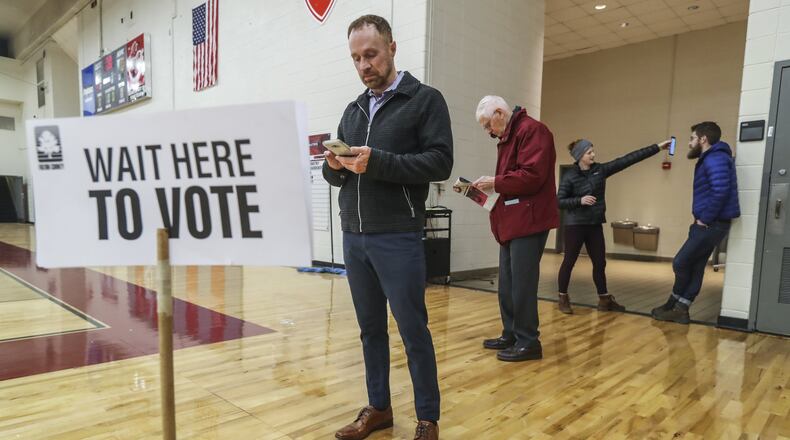Democrats running for one of Georgia’s U.S. Senate seats spent much of a debate Sunday pointing out perceived short-comings in their opponents.
Former Columbus Mayor Teresa Tomlinson faced questions about whether she paid enough attention to African-American neighborhoods during her tenure, while Sarah Riggs Amico was asked whether her family business' bankruptcy demonstrated a lack of management and financial skill.
Meanwhile, Jon Ossoff was forced to again defend his decision to run for Senate after a bruising and unsuccessful U.S. House bid in 2017. That closely watched special election gave him national name recognition.
“People know you, but not enough to want to vote for you,” Tomlinson said, referencing GOP polling that showed him trailing GOP Senator David Perdue in a matchup. “How can we afford to make you our nominee when you lack public service experience, couldn’t win your home district and have very little statewide appeal?”
Ossoff countered that he didn't put high value in those numbers while also reminding Tomlinson that he is still the perceived front-runner in the Democratic primary.
“Your campaign is so weak they didn’t even bother polling your name in that poll,” he responded.
The virtual debate, hosted by The Atlanta Press Club in partnership with Georgia Public Broadcasting, featured all six Democrats whose name will appear on the June 9 primary ballot. The debate was also aired live on GPB, making it the candidates’ first time facing off for a television audience.
The format gave them opportunities to question one another. Most used their time to jab at their opponents’ record, although Perdue and his allegiance to President Donald Trump also came up often.
All agreed that the most important question before voters is selecting a candidate who can defeat Perdue, who is running for a second six-year term and does not have a primary opponent.
Tomlinson responded to accusations that she did not do enough to reach out to black voters, saying that she must have done something right since she won every predominantly African-American precinct during her re-election bid in 2014.
Amico said her family trucking business faced financial troubles largely tied to pension costs, and she was able to restructure finances without laying off employees or reducing benefits.
“I am a battle-tested executive in a tough economy,” she said.
The three other candidates who participated in the debate are healthcare professional Marckeith DeJesus, Air Force veteran James Knox, and Maya Dillard-Smith, former director of the Georgia ACLU.
Dillard-Smith focused on the three leading candidates, saying they all come from a place of privilege. Ossoff, Amico and Tomlinson are white. Dillard-Smith, DeJesus and Knox are black.
When Amico used a discussion about her and her company’s finances to introduce the issue of equal pay for women and the scrutiny women face in the workplace, Dillard-Smith said it was an unfair deflection.
“The issue is not about equal pay for women; this is about a war in this country between the have and have-nots,” she said. “And you are part of the have class; Jon is a part of the have class; Teresa is part of the have class. And there are many of us who are part of the have-not into the very structural benefits that you all reap. So, it’s very it’s dishonest to make it seem as though you’re being attacked because you are a woman.”
Visit AJC.com for more coverage of The Atlanta Press Club’s primary debates on May 3 and 4.
Read more: Who’s challenging Sen. David Perdue in 2020?
About the Author
Keep Reading
The Latest
Featured



